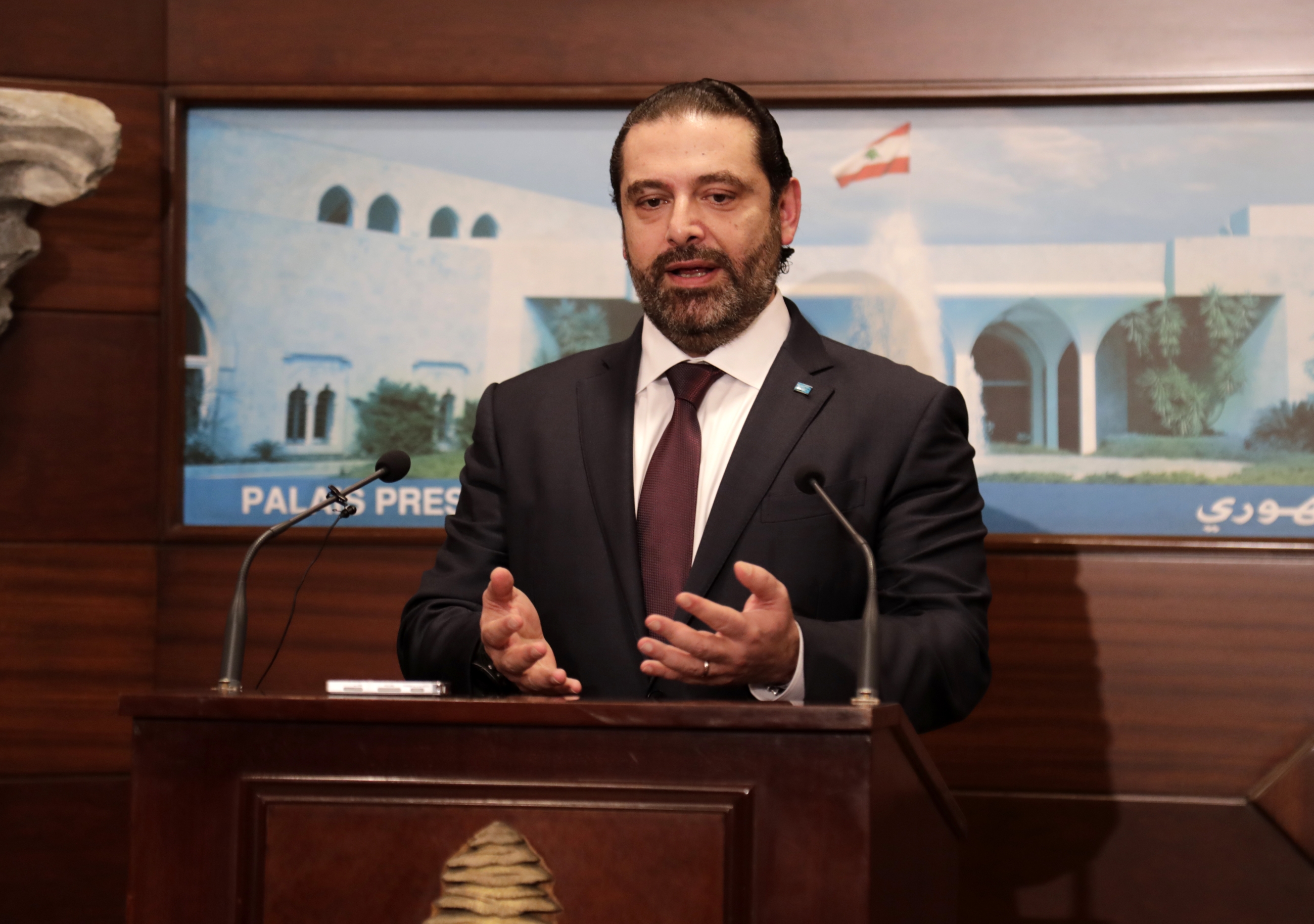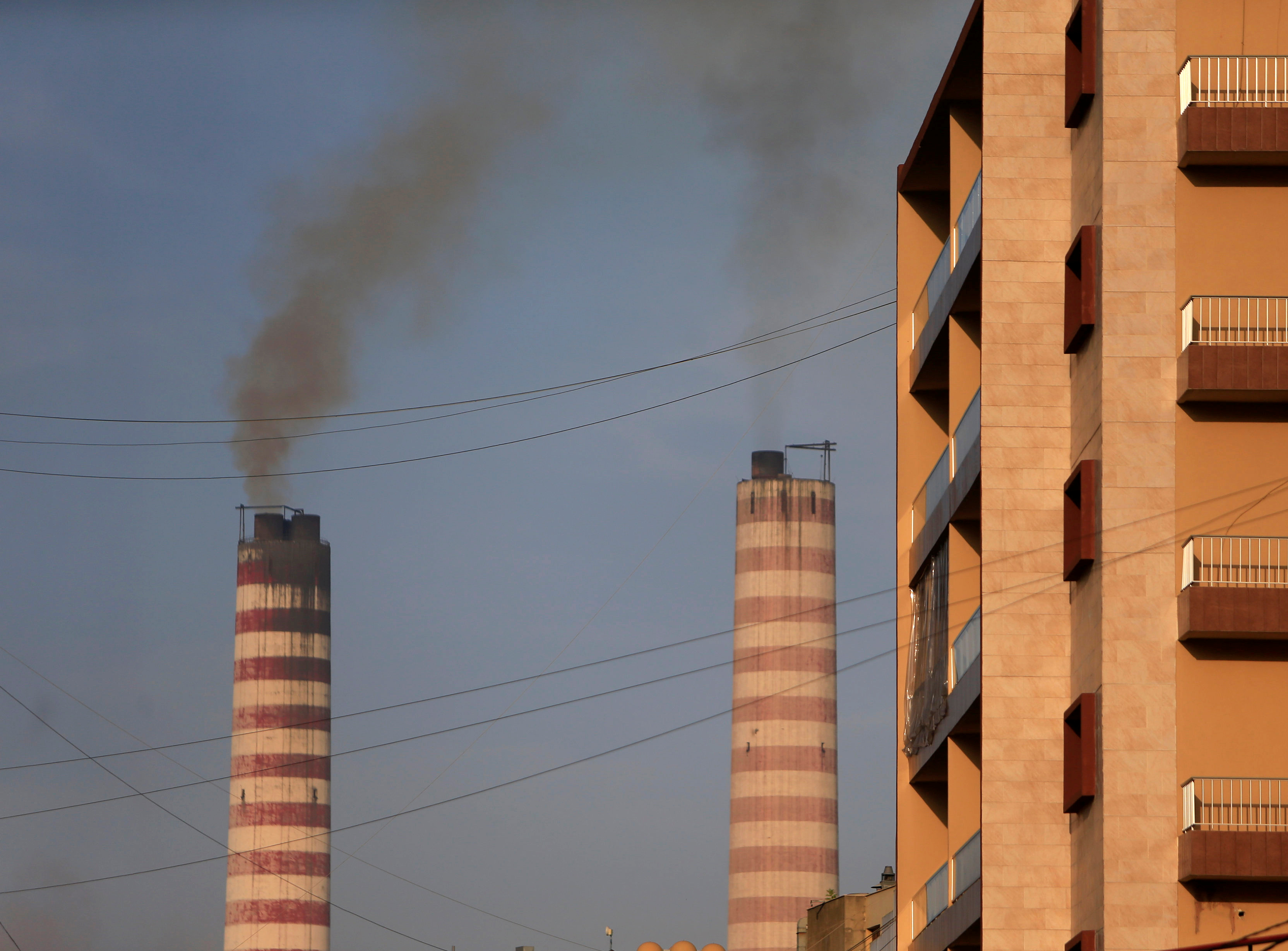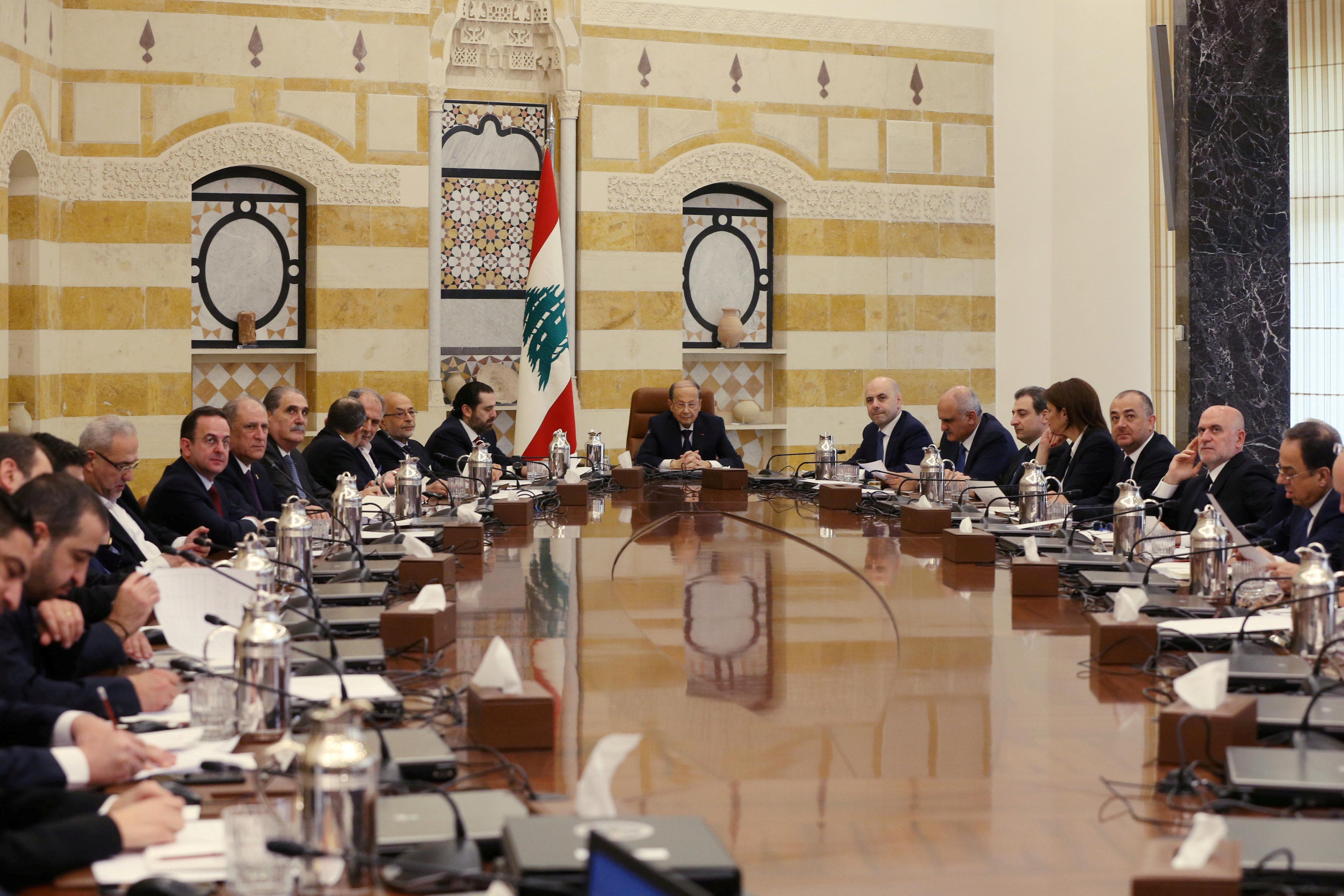Lebanon has a new government, but its economic future looks just as bleak

It’s been a long nine months, but after fraught negotiations, a new round of Lebanese ministers are being sworn into government, much to the relief of the country’s population.
That was the easy part.
Lebanon is used to periods of political wilderness. Yet this latest spell of paralysis has taken place as Lebanon has driven towards an economic precipice that could spell fresh disaster for the tiny, embattled Mediterranean country.
It is uncertain that the new cabinet has what it takes to address the monumental challenge ahead of it.
“In a nutshell, the country has had a yearly shortage of $10bn in cash for the past [two years], which is pure suicide,” Sami Nader, an economist and director of the Levant Institute for Strategic Affairs, told Middle East Eye.
Stay informed with MEE's newsletters
Sign up to get the latest alerts, insights and analysis, starting with Turkey Unpacked
'For drastic reforms to be made we need to see changes - particularly in the energy sector'
- Sami Nader, Levant Institute for Strategic Affairs
When announcing the government’s formation, Prime Minister Saad Hariri vowed to prioritise the economy. In an emergency effort to pull the economy together the cabinet agreed a draft policy statement on Wednesday, stipulating that Lebanon would attempt to reduce its deficit by 1 percent each year over the next five years.
Considering Lebanon ranks as the third-most indebted country in the world, with a debt amounting to about 155 percent of its GDP, such a move is bold to say the least.
Clearly, Lebanon needs to address its debt problem, but the policy statement is also an attempt to meet requirements international donors stipulated when pledging about $11.5 billion in soft loans and grants during April’s CEDRE investment conference in France.
Donors stipulated that aid would only be released if the country took necessary reforms to bring its economy out of the ditch.
Power politics
Experts, however, don’t believe that political leaders will pull it together to make such improvements and secure the aid.
“For drastic reforms to be made we need to see changes - particularly in the energy sector,” Nader said.
“Yet the privatisation of the energy sector has been a pending issue in Lebanon for the past two decades.”
Lebanon is unable to provide enough electricity for its needs, leading to daily, scheduled blackouts.
But its energy sector is also burning a huge hole in the country’s pocket.
Not only is the tariff subsidised to around half of what it should cost, but the few power plants Lebanon does have function on expensive fuel oil, rather than cheaper alternatives.
According to the World Bank, Lebanon’s electricity crisis is responsible for just under half of the country’s deficit.
One issue that likely stands in the way of altering this status quo, however, is Lebanon’s sectarian power-sharing political system that sees parties jostling over the political capital from flagship initiatives and cash they can eke out of their portfolios through corruption.
“Every reform requires a redistribution of the ‘share’ enjoyed by political parties which represent sectarian groups,” Nader said.
“Someone from one political party will make a suggestion fixing an issue in the energy sector,” he explained, but “the political party who runs the [related] ministry, therefore benefitting from its dysfunction, will reject the advice."
Ultimately, Nader underlined, the sectarian division of power in Lebanon prevents the country from making such reforms because it requires political groups to give up “spoils” reaped through corruption.
Dead cat bounce
Mona Alam, non-resident fellow at the Atlantic Council’s Rafik Hariri Center for the Middle East, was also sceptical that proper reforms would be made.
The only good news Lebanon might see, she said, was a “temporary positive effect on the economy created by restored confidence in a newly elected government”.
This temporary upward blip was seen in the moments after the new government was announced. Local newspaper The Daily Star reported that Lebanon’s sovereign dollar bonds jumped 3 to 4 US cents almost immediately after the news had broken.
Dan Azzi, fellow at Harvard University's Advanced Leadership Institute, called this an example of “dead cat bounce” - an economic term referring to a short-lived upward bump during an economy’s long-term decline.
Azzi, also the former CEO and chairman of Standard Chartered Bank in Lebanon, added that such shocks in the larger picture are usually not indicative of a changing trend, especially as the government itself sees no real change in its makeup.
“There are very few technical experts [in the government] who are able to deal with a problem that is now way too big for intrinsic solutions, or even extrinsic solutions,” he said.
“We’re seeing many of the same people [in power]. It is like the government has played ‘musical chairs.’
“And the fact that it took political leaders nine months to agree on a cabinet reflects the lack of a sense of urgency, lack of strategic direction and inability to execute an effective plan.”
Lebanon’s 75th government is more or less a shakeup of those that have been in place over recent decades.
This is best illustrated by the re-appointment Ali Hassan Khalil of the Shia Amal Movement as finance minister.
In early January, Khalil told local daily al-Akhbar that his ministry was preparing a restructuring of public debt.
His comments, unsupported by Lebanon’s central bank, or any other leader, immediately led to a credit rating downgrade of the country and some of its private banks, forcing Khalil to backtrack on his statement in an attempt to mitigate the damage.
Change needed
Azzi said if the government is serious about making necessary reforms, they will have to take bold initiatives that may not be beneficial in the short term to the political class.
The government’s composition is a good place to start, he said.
“There are 30 ministers in Lebanon’s government, compared to 15 in the United States, whose economy is 274 times that of Lebanon’s,” Azzi noted.
“The excess of ministries reflects waste, corruption and lack of prioritisation. You first need to cut the government down to a ratio that makes sense.”
The presence of Hezbollah - a political and armed movement blacklisted as a terror group by the US - in the government is also an issue, he added.
The Shia party has long dominated Lebanese politics and secured several seats in May’s parliamentary elections.
However, Washington has in recent months attempted to strangle the Iranian ally through sanctions and banking restrictions.
With Lebanon’s economy relying heavily on its banking system, Hezbollah’s more prominent representation in the new government risks destabilising the sector at a crucial time for the country.
“It shows a nonchalance and lack of understanding of the economic and monetary dangers lurking ahead,” Azzi warned.
“If this were done several years ago, things would be different. But is it rational to insist on their being in there today, at this economically very sensitive and precarious time?”
Middle East Eye delivers independent and unrivalled coverage and analysis of the Middle East, North Africa and beyond. To learn more about republishing this content and the associated fees, please fill out this form. More about MEE can be found here.






